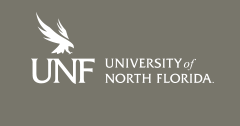Faculty Mentor
Dr. Clayton McCarl, Associate Professor
Faculty Mentor Department
Languages, Literatures and Cultures
Abstract
In the post–World War II global order, democracy has made advancements around the world. However, it is not uncommon for governments to establish systems that try to emulate democracy while embodying a more authoritarian rule, which quickly becomes problematic because authoritarian governments are notorious for violating their citizens’ rights. This can be seen specifically in Thailand, where multiple military coups d’état have caused changes in the government, forcing the nation to alternate between democratic and authoritarian policies. The most recent coup staged in 2014, shifted the government away from democracy entirely, transitioning into the strictest authoritarian rule Thailand has seen since 1976. With this understanding, I analyzed the effects of the shift to authoritarianism in 2014 on Thai citizens and their rights. This project addresses this question by researching the junta that emerged from the 2014 coup called the National Council for Peace and Order (NCPO). The NCPO believed the only way to hold onto power was through intimidation, suppression, and violation of the people’s rights. Through torture, free speech infringements, and even murder, the NCPO and their leader, Prayuth Chan-ocha, have proven they are unable to lead Thailand in a manner that protects their people and advocates for their wellbeing.
Recommended Citation
Harrison, Alexandra T.
(2022)
"Thailand: The Return of Authoritarianism,"
PANDION: The Osprey Journal of Research and Ideas: Vol. 3:
No.
1, Article 11.
Available at:
https://digitalcommons.unf.edu/pandion_unf/vol3/iss1/11


